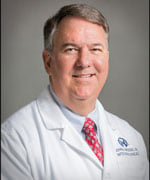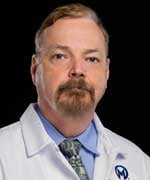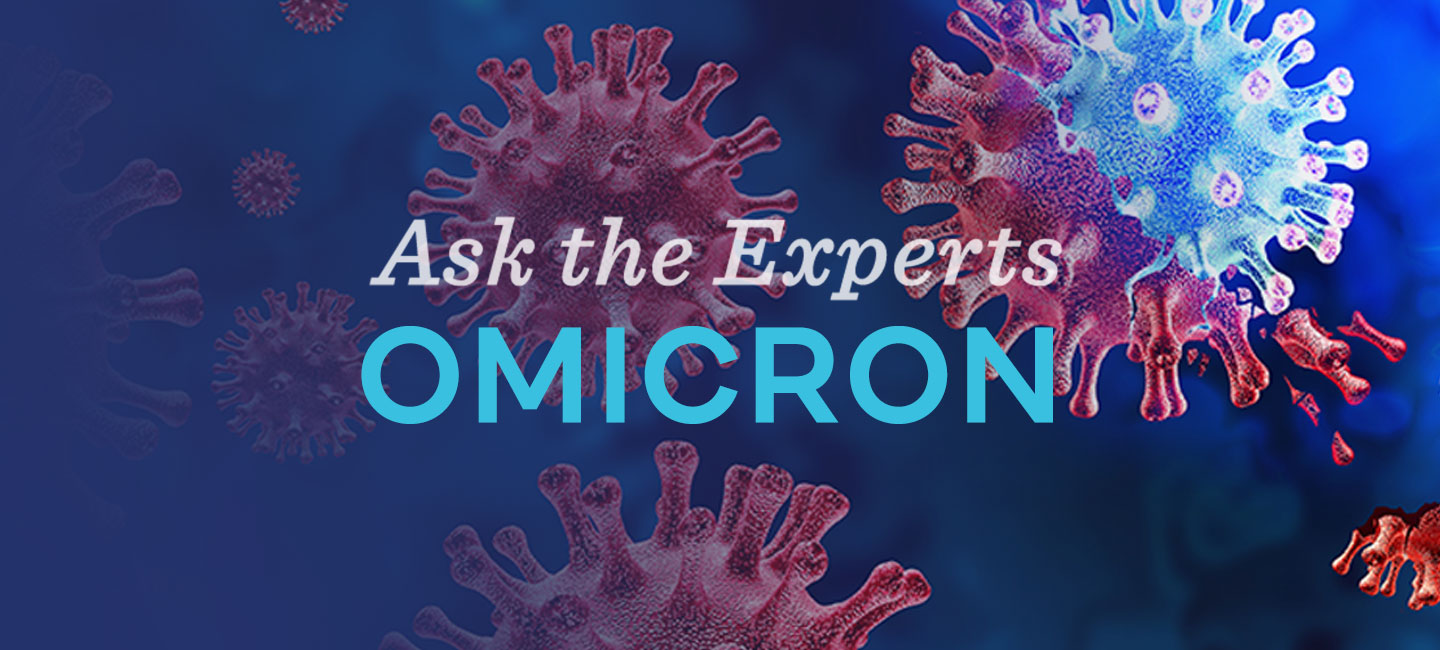What Do I Need to Know about Omicron?
The omicron variant of COVID-19 that started in South Africa now makes up 96% of the strains in the United States. It’s considered three times more contagious than delta. Fortunately those infected with omicron are less likely to be hospitalized or die. The best way to protect yourself and your loved ones is by getting vaccinated. You are considered the most protected if you have been vaccinated with a booster shot or third dose within the past three months.
We recently asked our Moffitt Cancer Center experts to weigh in on the latest with omicron. Here’s what Dr. Robert Keenan, chief medical officer, and Dr. John Greene, chair of the Infectious Diseases Program, had to say.
When will the number of omicron cases peak?
Keenan: We don’t know for certain, but I think we may see a peak a little earlier than what was predicted by some of the models, perhaps in mid- to late January. The thing that we can take comfort in is that the experience in other parts of the world has been a very rapid rise in those cases accompanied by an equally rapid decline. I suspect we’re going to see the same thing in the United States in general and in Florida.
What are the symptoms of omicron?
Greene: The top four symptoms are fever, congestion, postnasal drip and a cough. The loss of smell and tase, which distinguishes it from the flu, hasn’t been an overwhelming symptom.

Dr. John Greene, Chair, Infectious Diseases Program
If you test positive for COVID, how long are you contagious?
Greene: If you have a normal immune system, most people will be excreting the virus within one day of having contact and then it’s almost completely gone by four or five days. After two years of finetuning, the CDC recently changed its quarantine period from 10 days to five. It’s now OK to go to work as long as you have no symptoms after 24 hours on the fifth day, and you must wear a mask the whole time, which is reasonable because that is found to prevent low level virus excretion.
What precautions should cancer patients be taking?
Greene: Avoid large crowds, wear a mask when you cannot socially distance and wash your hands frequently. Most episodes of spread occur in your own home, especially when you have large gatherings during family visits. Stay away from poorly ventilated and confined rooms. Going outside is always preferred.
Keenan: Cancer does not wait for COVID. Almost two years ago, when no one knew what to do, we went through a phase where we were not doing elective surgeries and stopped screenings. We now have lots of mechanisms in place to be able to continue to do those things. We are not altering our operations at all because we want to make sure cancer patients are able to get the treatments that they need and people are able to get the screenings they need so that we can be sure that if someone does have cancer, we’re trying to find it as early as possible.
What kind of mask should we be wearing?
Greene: The least effective ones are the neck gaiters and the cloth masks. The next level up is a surgical mask, which has great filtering ability. People also need to wear their masks properly, which is not just on the chin or not covering the nose.
What should cancer patients and families expect when they come to Moffitt?
Keenan: Anyone who’s been a patient here for awhile knows that we have made several adjustments to our visitor policy. Most recently because of omicron, we have tightened that up to one visitor for both inpatient and outpatient. Universal masking has been there from the beginning. The more you have people wearing masks, the less likely there will be transmission of disease.
Will there be a second booster shot?
Greene: We already know that the immunosuppressed are supposed to get three doses in a row, which are not boosters. It’s beefing them up as opposed to getting two and then a booster. In that population, they will get four doses. Outside of that population, we are not recommending a fourth booster or dose.
Is Moffitt still offering vaccines to patients?

Dr. Robert Keenan, Chief Medical Officer
Keenan: We stopped offering vaccination sessions at the end of December. The number of people taking advantage of the sessions had declined because there’s so much availability in the community. Patients should be able to get vaccinated in the community without too much trouble.
How is Moffitt treating COVID patients?
Keenan: We have the ability to give an antiviral drug called Remdesivir, which is a three day infusion. It has the potential ability to keep a patient from advancing their symptoms and going to the hospital. The challenge with any medication is supply. There’s another form of therapy called monoclonal antibody therapy, and a couple that were used earlier in the pandemic did show effect against earlier variants including delta, but don’t seem to be as effective against omicron. Now that omicron is so prevalent, even though we have some supplies of those, they’re not really effective. There are two pills that have now been approved, one from Pfizer and one from Merck, and we’re still waiting for distribution coming through the federal government. Our understanding is that those oral medications will be provided to the community first through pharmacies where a physician can write a prescription to it.
There’s a new agent Evusheld, which is a monoclonal antibody but it’s for a very specific purpose. It’s used to try to protect people who are immunocompromised and not able to mount an adequate immune response through vaccination or they’re not able to be vaccinated due to some type of medical reason. We do have some of that here at Moffitt, and the protocols are currently being developed. Evusheld will be given predominantly in the liquid tumor space, to blood and marrow transplant patients and patients having cellular immunotherapies who are not able to generate any kind of immune response. Moffitt physicians will identify which patients are the most appropriate for this medication.
Facts on Omicron
96%
Omicron makes up 96% of all strains in the United States
50+
Number of omicron mutations
5
Number of days you should quarantine after a positive COVID test
58
Average age of those infected with delta
35
Average age of those infected with omicron
Females
More likely to be infected with omicron compared to delta



